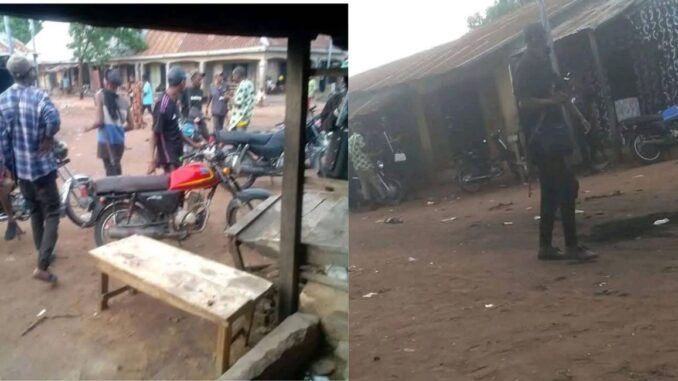News
HUNGER: AFDB Approves $134 Million Grant To Support Agriculture In Nigeria

The African Development Bank (AfDB) says it is supporting Nigeria with $134 million for the cultivation of rice, maize, cassava and soybeans to boost food production.
Akinwumi Adesina, president of the AfDB, disclosed this on Saturday after visiting the Centre for Dryland Agriculture (CDA) at Bayero University, Kano.
Adesina said the bank would support Nigeria in cultivating 300,000 hectares of rice and maize, 150,000 hectares of cassava and 50,000 hectares of soybeans during the 2024 planting season.
“This March, the AfDB is supporting Nigeria to cultivate 118,000 hectares of heat-tolerant varieties of wheat and another 150,000 hectares of maize,” Adesina said.
“We live in an era of climate change and yet only 3 percent of African agriculture is under irrigation. We have to make sure we help our farmers with information that is timely and appropriate.
“We have no alternative but to adapt to climate change; adopt better ways of using water, particularly in the cultivation of dry land crops that are more resilient and tolerant.”
The economist said the AfDB would provide grants for the CDA and collaborate with it to become a centre used for the prediction of weather patterns and the gathering of information that would make farmers plan better.
“We will work with the centre to become one of the centres of excellence in technology,” he said.
“We will also support youths to develop their business ideas into reality with our 20,000-dollar grant on `Agri Pitch’ and `Agri Hacking’.”
Adesina commended Sagir Adamu-Abbas, the vice-chancellor of Bayero University, and Jibrin Mohammed-Jibrin, director of CDA, for assisting farmers with access to technology in the face of climate change.
In his remarks, Mohammed-Jibrin said the CDA is renowned for its research and teaching in development initiatives, focusing on dry land agriculture.
“The centre is dedicated to improving livelihoods, resilience and sustainable use of natural resources in African drylands through training and demand-driven research,” he said.
He said the CDA had received several World Bank grants for research and had so far enrolled about 1,153 doctorate and masters’ degree students and trained farmers in agro-ecological practices.
CDA is a World Bank-supported centre established to serve as a regional training hub for the West and Central African sub-regions.
News
Reps Tackle CBN, OAGF Over Missing Grants, Bailout Funds

According to him, such financial mishandling not only disrupts critical public services and projects but also results in major losses to the nation’s purse—resources that could have been channelled into crucial services and developmental efforts, as laid out in Section 14(2)(b) of the Constitution.
Speaker Abbas, thereafter setup a Special Committee to be chaired by Rep. Chinedu Martins to immediately launch a probe into the “Utilisation of take-off grants, bailout funds, and interventions allocated to MDAs, government institutions, and GOEs from 2015 to present.”
News
Abuja light rail project must be commissioned on May 29-Wike vows

The FCT Minister, Mr. Nyesom Wike, expressed satisfaction with the progress on the Abuja light rail project, reaffirming its May 29 delivery as sacrosanct.
He made these assurances after inspecting the ongoing construction of access roads to the train stations on Wednesday, from Metro Train Station in the Central Area to Nnamdi Azikiwe International Airport, Abuja.
Reassuring journalists accompanying him, the minister reiterated that President Bola Tinubu would commission the rail project on May 29 to mark his second year in office.
The visited stations were Wupa station near Idu and Bassanjiwa station near the airport.
“This is part of our routine inspection of ongoing projects to see the contractors’ progress,” Wike explained.
“We are working day and night to fulfill our promise to President Tinubu and FCT residents. By May, Mr. President will ride on the Metro line.”
News
Just in: Alleged Herdsmen Armed With AK-47 Rifles Take Over Communities In Benue State

Gunmen suspected to be Fulani herdsmen are currently invading some communities in the Ukum Local Government Area of Benue State.
According to sources, the herdsmen armed with AK-47 rifles stormed the community around 04:15pm on Thursday.
“Our lives are in danger this evening, armed Fulani herdsmen, about 600 in numbers have taken over our communities this evening,” a resident told SaharaReporters.
“They’re currently moving around towns in Ukum Local Government Area of Benue state. No security personnel at all, Governor Alia didn’t send security, they said operation will start soon once they (herders) have observed the place.”
The insecurity situation in Benue has been alarming in recent weeks with attacks from gunmen suspected to be herdsmen.
The media had reported that suspected herdsmen again unleashed terror in Benue State, attacking three communities in Otukpo Local Government Area (LGA) on Wednesday, just a day after 11 people were killed in a deadly raid on Otobi community.
The latest victims of the escalating violence were Emichi, Odudaje, and Okpamaju, communities that had previously suffered an attack in February, which left five people dead.
However, the renewed attack has created fear and mass displacement among residents, with women and children fleeing to safety.
Local sources say the death toll from the fresh attack remains unclear, but several casualties are feared.
-

 News14 hours ago
News14 hours agoBREAKING: Unknown gunmen reportedly storm Senator Natasha’s family residence
-

 News16 hours ago
News16 hours agoSnub story on removal of Rivers Sole Administrator, it’s FAKE-Chief Registrar
-

 News22 hours ago
News22 hours ago“How my father escaped assassination” – Bishop Oyedepo’s daughter
-

 News22 hours ago
News22 hours agoFG expresses sympathy for CBEX victims, urges a united effort to combat Ponzi schemes
-

 News15 hours ago
News15 hours agoSAD! Again, Alleged Herdsmen Attack Three Benue Communities
-

 News8 hours ago
News8 hours agoAbuja light rail project must be commissioned on May 29-Wike vows
-

 Politics16 hours ago
Politics16 hours agoPDP govs are jokers, can’t stop coalition train, Atiku boasts
-

 News13 hours ago
News13 hours agoLawmaker Slams NBA Over Rivers Crisis, Demands Return of N300m





